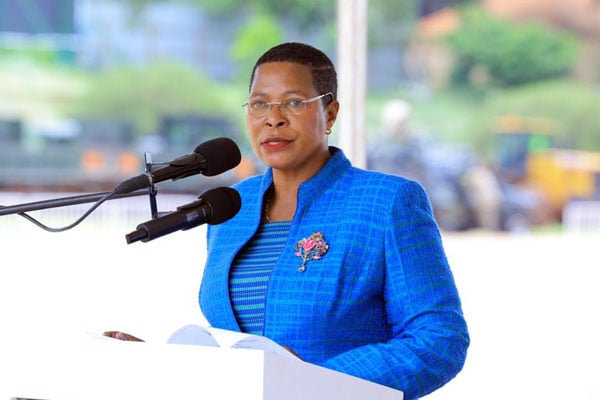Wananchi mark Africa Day with deep sense of despair

Harold Acemah
What you need to know:
Impact. The glaring lack of good, effective and selfless national leaders across the length and breadth of Africa has impacted negatively in efforts to implement the AU’s ambitious Agenda 2063.
Yesterday, May 25, was Africa Day, an auspicious and important day on which Africans and friends of Africa worldwide commemorate the founding of the Organization of African Unity (OAU) by 30 sovereign African States on May 25, 1963. Uganda was one of the 30 founding member states which established the OAU in Addis Ababa, Ethiopia, and the Ugandan delegation to that historic conference was led by then prime minister Apollo Milton Obote.
Africa Day was originally known as Africa Freedom Day and it was earmarked as a day “to mark each year the onward progress of the liberation movement and to symbolise the determination of the people of Africa to free themselves from foreign domination and exploitation”.
A few years later it was renamed Africa Liberation Day to signify the liberation struggles waged in Angola, Mozambique, Southern Rhodesia and South Africa. The theme for this year’s Africa Day celebrations is: “The year of refugees, returnees and internally displaced persons:
Towards durable solutions to forced displacement in Africa.”
Several activities have been scheduled to celebrate Africa Day at African Union headquarters in Addis Ababa and at capitals of AU member states, including Uganda. The planned activities include panel discussions on the theme of the day, children’s plays, culinary exhibitions and entertainment, such as traditional African dances.
I hope the occasion will be used to engage in frank and open debates on the tragedy which has befallen Africa this century and has forced thousands of young and able-bodied Africans to flee the continent in search of greener pastures in Europe, North America and the Middle East.
On the surface, the root causes of recent African migration appear to be economic, especially rampant youth unemployment, but deep down the underlying causes are political, namely, bad governance, tyranny, nepotism, endemic and systemic corruption on a massive scale, unjust and unfair allocation of the national cake and wrong national priorities to mention but a few.
Challenge of leadership vacuum
The glaring lack of good, effective and selfless national leaders across the length and breadth of Africa has impacted negatively in efforts to implement the AU’s ambitious Agenda 2063. Unlike distinguished African leaders, such as Kwame Nkrumah, Julius Nyerere and Gamal Abdul Nasser, who assembled in May 1963 to lay the foundation of the OAU, today’s breed of African leaders are callous, greedy, mediocre, selfish and generally leave a lot to be desired.
With few exceptions such as prime minister Abiy Ahmed of Ethiopia, president Nana Akufo-Addo of Ghana and president Cyril Ramaphosa of South Africa, most African countries are led by conmen, frauds and impostors who seek or grab power in order to loot and plunder national resources for self-aggrandisement.
The plight of African migrants struggling to cross the Mediterranean Sea to Europe is very painful and reminds me of the transatlantic slave trade of the 17th and 18th centuries. The blame for this monumental and shameful tragedy lies squarely on the shoulders of African leaders whose anti-people policies have forced millions of African wananchi to suffer the unenviable status of refugees or internally displaced persons.
Instead of encouraging young Ugandans to look for jobs in the Middle East where they are treated like slaves, government must find the requisite resources to create jobs for unemployed youth. It is ultimately the duty and primary responsibility of government to solve the problem of youth unemployment which is a ticking time bomb. Funds wasted on the so-called Operation Wealth Creation, the military and regime survival should be channelled into job creation.
The African Union together with its member states must not only address the symptoms, but also the root causes of the burning problems of refugees, returnees and internally displaced persons. Wananchi are dismayed by the lack of concrete and positive action on the part of the African Union on these matters. I hope at the next AU Summit African leaders will address this matter with a view to finding just, sustainable and lasting solutions.




